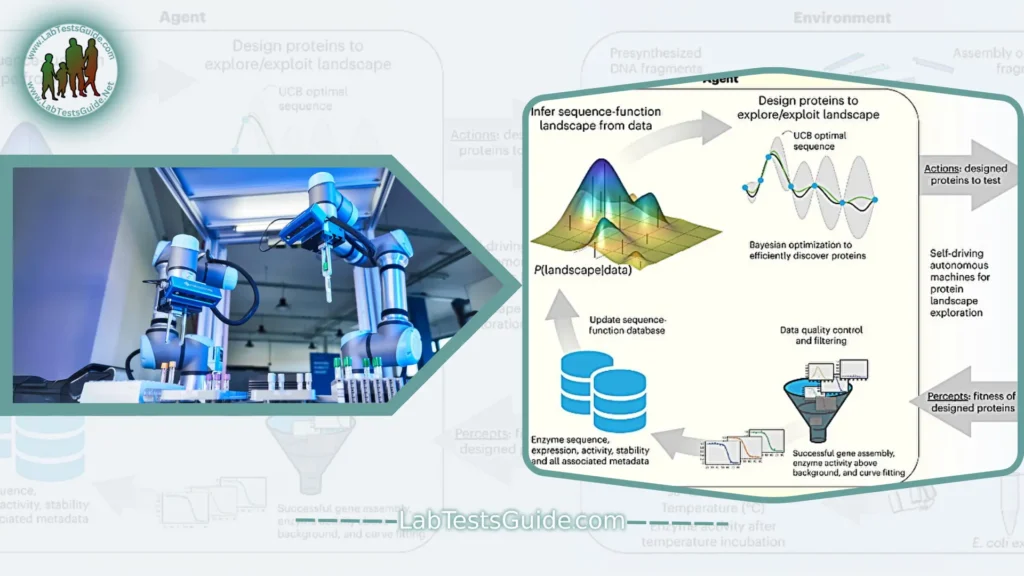A trio of biochemists at the University of Wisconsin-Madison have developed a system that automates the enzyme recreation process using robotic instruments and an artificial intelligence model. In their article published in the journal Nature Chemical Engineering, Jacob Rapp, Bennett Bremer and Philip Romero describe their system.
by Bob Yirka , Phys.org

Enzyme reengineering is a process in which chemists subject a test enzyme to experiments, hoping to produce a similar enzyme with desired properties, for example by exposing it to higher than normal temperatures. Current processes involve monotonous and time-consuming detection, and chemists would welcome a way to automate this process. In this new effort, the research team has done just that.
The researchers used a facility that houses robots that perform chemical experiments. They added an artificial intelligence model that was able to monitor experiments and use their results as a starting point for new experiments. The idea was to allow the system to learn as it worked. Unfortunately, the team discovered that traditional robotic equipment wasn’t up to the task: They outsourced that part of their system to a cloud-based company that specializes in remote chemical work.
After setting up their system and fine-tuning it to improve results, the researchers tested it by identifying a group of enzymes and then asking the system to find new versions that were exposed to higher temperatures but can continue to function normally. They gave the system 20 rounds to generate the newly designed enzymes, and the system produced four, each capable of operating in an environment 12°C higher than normal.
The research team concludes that their approach is viable, although they note that for it to be truly useful it will be necessary to develop a new generation of robotic hardware that takes full advantage of its potential.







